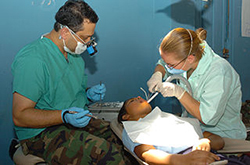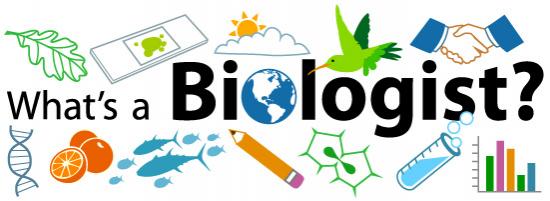show/hide words to know
Biology Careers Outside of Academia

Biologists who work for the FDA may inspect food items before they are cleared to be put on the shelves of local supermarkets. Image by the U.S. Food and Drug Administration.
Within the government, there are many different agencies at which a biologist could work. For example, a person might work for the United States Department of Agriculture (commonly known as the USDA). Here, she or he might travel to different farms to see if farmers are growing their crops using the approved standards.
Biologists can also work for the United States Food and Drug Administration (FDA), where they might approve different products (like food or medicine) so that people can buy them. Other government organizations include the Environmental Protection Agency (EPA), the United States Forest Service, or the National Institutes of Health (NIH).
Biologists Can Work at Non-Governmental Organizations
There are also many different non-governmental organizations (NGOs) that serve unique needs. While biologists in this field do not work directly for the government, many of them work to help the government work with the public and with other scientists. For example, they may give the government scientific information to make new laws and regulations to keep people and ecosystems safe.
Biologists in Industry
Other biologists might begin to work in industry. Work in this field is very diverse. But in many cases, working in this field means that a biologist will work to make a new product or improve the way an existing product is made. Here the word product can mean many things you see or hear about in your daily life, like your food, medicine, or electricity. A biologist in this field may work to study how bacteria or other microorganisms can be used to make new medicines. Other biologists might study how changes in climate affect how crops or other plants grow.
Using biological concepts and models to make products is often called biotechnology or bioengineering. These positions are becoming particularly important as humans try to solve some of the environmental and medical challenges that our world is facing. Many biological tools can be used to solve real-world problems that affect each of us.
Other Biology Jobs

Many who earn a biology degree will continue their training to become a medical professional, such as a dentist. Image by Kaye Richey, U.S. Army.
Teaching is also an option for a person with a biology degree. Good biology teachers are always needed. Some biologists who follow this career path are able to teach young students about science.
Lastly, many biologists will decide to continue studies to work as a medical professional. Examples of this include a doctor, nurse, or dentist, among others. These professions require more education, but obtaining a degree in biology is a great first step in this process.
These career paths are some of the more common ones for a biologist. However, there are other options available beyond what has been mentioned here. The world of biology is very diverse, and so the jobs in this field are always growing and changing. Check out the Careers page to learn about more biology jobs.
Image of man looking out in to water by Joshua Earle.
View Citation

The world of biology is very diverse, and so the career path for a biologist can go in many different directions depending on his or her interest.
Be Part of
Ask A Biologist
By volunteering, or simply sending us feedback on the site. Scientists, teachers, writers, illustrators, and translators are all important to the program. If you are interested in helping with the website we have a Volunteers page to get the process started.
Discover exciting careers in science and beyond by exploring fun virtual Worktours(link is external) of real companies.







